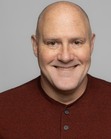Separating the Author from the Work
I’m always looking for the author inside the book. "Did the writer really live in Panama for seven years? Did she attend Yale? Well, obviously this section could only be written by someone who knows what it’s like to ski professionally."
It’s a fun game to try to glean bits of autobiography from a novel. But does it help deepen my appreciation of the work? For example, Charles Dickens worked in a blacking factory as a young boy. Does the fact that he has David Copperfield work there as well make the episode more real or more poignant?
In The Stuff They Carried, Tim O’Brien wrangles with the very question of truth and autobiography with his stories about Viet Nam. In one story, he says a particular incident was absolutely true, and in the next he says he made it up but if it made you feel like you were in Viet Nam, then the story has served his purpose.
I have to be careful when I play the autobiography game because it can sometimes wreck the work for me.
Last night I finished an awesome novel -- a seminal work that influenced lots of other writers. For once, I didn’t play the autobiography game while I was reading it, but then I made a mistake and looked up the author’s bio on Wikipedia.
The writer has been vocal about some issues in society, and his viewpoint is the opposite of mine. Now I’m stuck. I don’t think I can read any more of his books, which is a shame because he is a really good writer.
Is that fair?
Shouldn’t I be able to separate the author from the work? Shouldn’t the writer have the freedom to hold personal views that are contrary to mine? And if I enjoy the writing, why wouldn’t I continue to read his work?
And yet I also have a responsibility to my conscience. I don’t want to support someone who actively works against an issue that is important to me. And how far should my reaction go?
In reading this particular novel, I did not glean any of the writer’s viewpoints on this social issue, but according to the Wikipedia bio, he does address the issue in other works. So, how far should my reaction go? Do I simply never read any more of his books or do I actively boycott his novels?
My writer-brain – the part of my brain that wants to learn from other writers – wishes I had remained blissfully ignorant of this information so I could continue reading his books and learn from his craft. And my belief in the freedom of speech makes me defend his right to his opinions, even if it leaves me in a tricky spot about his other novels.
Can I separate the author from the work? Apparently not.
It’s a fun game to try to glean bits of autobiography from a novel. But does it help deepen my appreciation of the work? For example, Charles Dickens worked in a blacking factory as a young boy. Does the fact that he has David Copperfield work there as well make the episode more real or more poignant?
In The Stuff They Carried, Tim O’Brien wrangles with the very question of truth and autobiography with his stories about Viet Nam. In one story, he says a particular incident was absolutely true, and in the next he says he made it up but if it made you feel like you were in Viet Nam, then the story has served his purpose.
I have to be careful when I play the autobiography game because it can sometimes wreck the work for me.
Last night I finished an awesome novel -- a seminal work that influenced lots of other writers. For once, I didn’t play the autobiography game while I was reading it, but then I made a mistake and looked up the author’s bio on Wikipedia.
The writer has been vocal about some issues in society, and his viewpoint is the opposite of mine. Now I’m stuck. I don’t think I can read any more of his books, which is a shame because he is a really good writer.
Is that fair?
Shouldn’t I be able to separate the author from the work? Shouldn’t the writer have the freedom to hold personal views that are contrary to mine? And if I enjoy the writing, why wouldn’t I continue to read his work?
And yet I also have a responsibility to my conscience. I don’t want to support someone who actively works against an issue that is important to me. And how far should my reaction go?
In reading this particular novel, I did not glean any of the writer’s viewpoints on this social issue, but according to the Wikipedia bio, he does address the issue in other works. So, how far should my reaction go? Do I simply never read any more of his books or do I actively boycott his novels?
My writer-brain – the part of my brain that wants to learn from other writers – wishes I had remained blissfully ignorant of this information so I could continue reading his books and learn from his craft. And my belief in the freedom of speech makes me defend his right to his opinions, even if it leaves me in a tricky spot about his other novels.
Can I separate the author from the work? Apparently not.
Published on May 13, 2014 04:19
No comments have been added yet.



